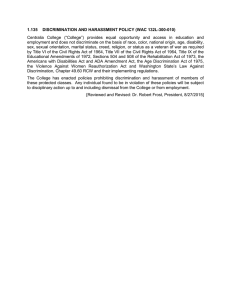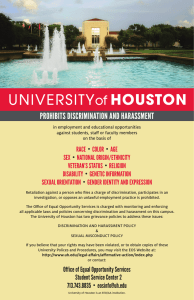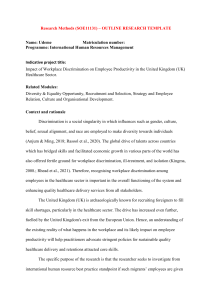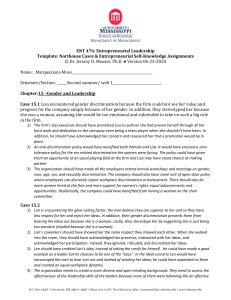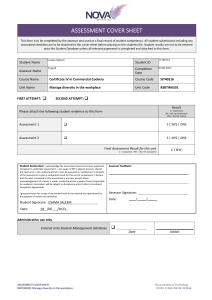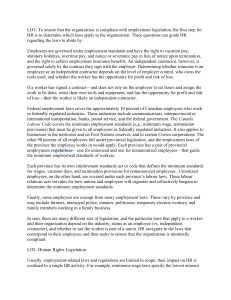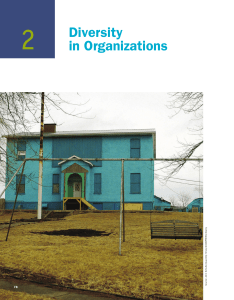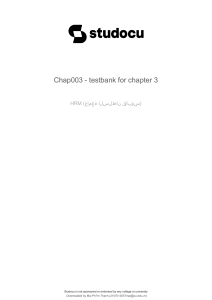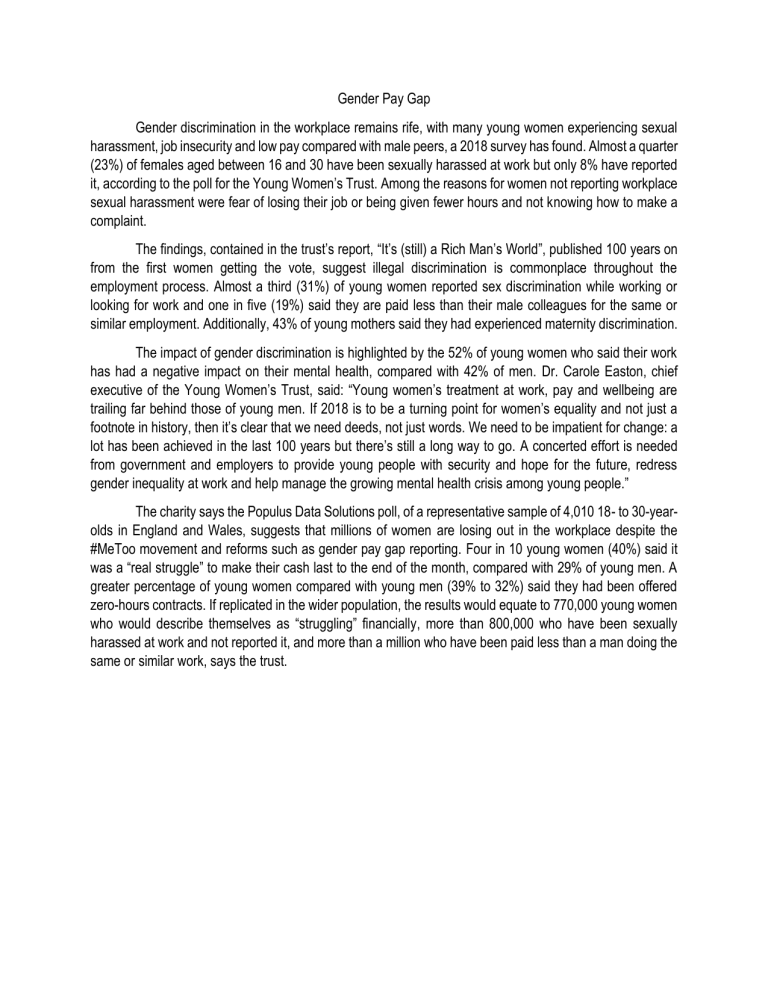
Gender Pay Gap Gender discrimination in the workplace remains rife, with many young women experiencing sexual harassment, job insecurity and low pay compared with male peers, a 2018 survey has found. Almost a quarter (23%) of females aged between 16 and 30 have been sexually harassed at work but only 8% have reported it, according to the poll for the Young Women’s Trust. Among the reasons for women not reporting workplace sexual harassment were fear of losing their job or being given fewer hours and not knowing how to make a complaint. The findings, contained in the trust’s report, “It’s (still) a Rich Man’s World”, published 100 years on from the first women getting the vote, suggest illegal discrimination is commonplace throughout the employment process. Almost a third (31%) of young women reported sex discrimination while working or looking for work and one in five (19%) said they are paid less than their male colleagues for the same or similar employment. Additionally, 43% of young mothers said they had experienced maternity discrimination. The impact of gender discrimination is highlighted by the 52% of young women who said their work has had a negative impact on their mental health, compared with 42% of men. Dr. Carole Easton, chief executive of the Young Women’s Trust, said: “Young women’s treatment at work, pay and wellbeing are trailing far behind those of young men. If 2018 is to be a turning point for women’s equality and not just a footnote in history, then it’s clear that we need deeds, not just words. We need to be impatient for change: a lot has been achieved in the last 100 years but there’s still a long way to go. A concerted effort is needed from government and employers to provide young people with security and hope for the future, redress gender inequality at work and help manage the growing mental health crisis among young people.” The charity says the Populus Data Solutions poll, of a representative sample of 4,010 18- to 30-yearolds in England and Wales, suggests that millions of women are losing out in the workplace despite the #MeToo movement and reforms such as gender pay gap reporting. Four in 10 young women (40%) said it was a “real struggle” to make their cash last to the end of the month, compared with 29% of young men. A greater percentage of young women compared with young men (39% to 32%) said they had been offered zero-hours contracts. If replicated in the wider population, the results would equate to 770,000 young women who would describe themselves as “struggling” financially, more than 800,000 who have been sexually harassed at work and not reported it, and more than a million who have been paid less than a man doing the same or similar work, says the trust.
